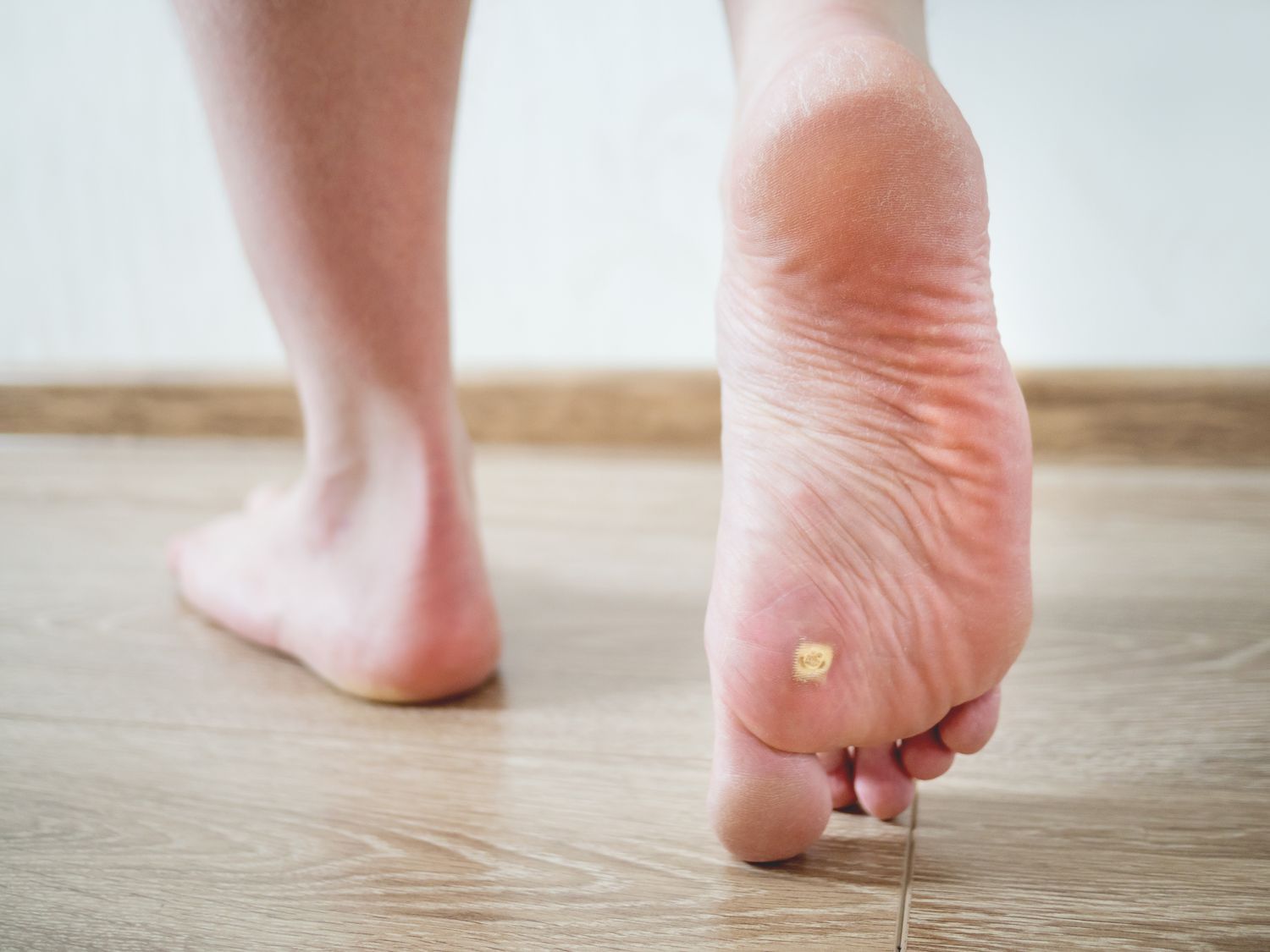Plantar Warts
Plantar Wart Podiatrist
Did you know that warts are caused by a viral infection called Human Papilloma Virus (HPV)? There are many different strains of HPV, but only a few can cause warts on your feet. The rest are more likely to cause warts on other parts of your body like hands, face, or genitals. A specific type of wart that you might find on the sole of your foot is called a verruca wart or plantar wart.
While plantar warts
are not usually a major health concern, they can be contagious and cause discomfort. If you have a plantar wart that is bothering you, it's a good idea to seek advice and treatment from a podiatrist at
Pinnacle Podiatry. These warts are small, rough, thick, and can be painful, so it's best to address them sooner rather than later.
Plantar Wart Symptoms
Plantar warts come in all shapes and sizes and are caused by a viral infection. They usually have tiny blood vessels at the core, supplying them with blood and nutrients, which may look like dark spots in the centre of the wart. Plantar warts can be painful, especially if they are on weight-bearing areas of your foot due to the pressure from your body weight.
Some common signs of plantar warts include:
- A small, rough, grainy growth on the bottom of the foot, often on the toes, ball of the foot, or heel
- A solid border around the fleshy lesion
- Black spots within the lesion
- Thickened skin with a yellowish appearance
- Pain when squeezing the margins of the lesion
- Pain when walking on the affected area
- Disruption of normal skin lines and patterns on the foot
- Multiple growths in the same area known as mosaic warts
Although plantar warts are usually not a major health concern, they can be extremely painful, especially when they develop in high-pressure areas like the heel, ball of the foot, or toes. This discomfort can affect everyday activities like running and walking, as the thick wart applies pressure on sensitive nerve endings in the skin. If you experience persistent pain, it's best to
seek plantar wart treatment from a Pinnacle Podiatry
podiatrist.
What Causes Plantar Warts?
Plantar warts are caused by a slow-growing virus called HPV that can be passed through direct or indirect contact. This means you can catch it from touching someone who is infected or even from sharing things like shoes or socks with them. However, not everyone who comes into contact with the virus will develop warts because everyone's immune system reacts differently to it.
The virus loves warm, damp places, so it's often found in communal areas like public showers and pools. It can enter your body through a tiny cut or break in your skin.
Plantar warts specifically target the skin on the bottom of your feet, causing a raised, fleshy growth. They can happen to anyone, but certain factors can increase your chances of getting one, such as:
- Child and teenagers, are more likely to be exposed to the virus in places like school pools and are still building up their immunity.
- Having a weakened immune system.
- Walking barefoot in places where the virus thrives, like locker rooms and showers.
- Having cuts, injuries, or skin infections on your feet that can let the virus in.
- Coming into direct contact with someone who already has warts.
So be cautious, especially in public areas, to lower your risk of getting a pesky plantar wart.
Plantar Wart Treatment
Plantar warts on the sole of your foot can be a real pain! While most warts will disappear on their own, plantar warts often need a little extra help to go away. If you're dealing with a stubborn wart, visit your local podiatrist at
Pinnacle Podiatry. They can offer a few different treatments to help kick that wart to the curb. From mild acids to freezing treatments, there are options to suit your needs and pain tolerance.

FAQS
Here are answers to some common questions about plantar warts.
-
What is a plantar wart?
Plantar warts are small, rough lumps on your skin that are caused by a virus called the Human Papilloma Virus (HPV).
-
How to get rid of plantar warts?
Now, we know it can be tempting to try those over-the-counter wart pads or creams, but be careful! They can do more harm than good, potentially causing more pain and leaving your skin vulnerable to infections.
Podiatrists offer a variety of treatments to help with warts on the feet. Here are some of the ways they can help:
- Performing sharp debridement to safely remove the tough outer layer of the wart tissue.
- Applying mild acids to gently burn away the wart tissue.
- Using cryotherapy to freeze the wart.
- Performing minor surgery under local anesthesia for complete plantar wart removal.
So, if you're dealing with pesky warts on your feet, Pinnacle Podiatry is here to help!
-
Are plantar warts contagious?
Did you know that plantar warts can easily spread to others? They are caused by the human papillomavirus (HPV) and can be passed through direct contact with infected skin or by sharing personal items like shoes, socks, and towels. Be cautious if you have a plantar wart, as you could inadvertently spread it to other parts of your body by touching it. Stay aware and take necessary precautions to prevent spreading the virus.

